#St. Anthony of Padua
Text


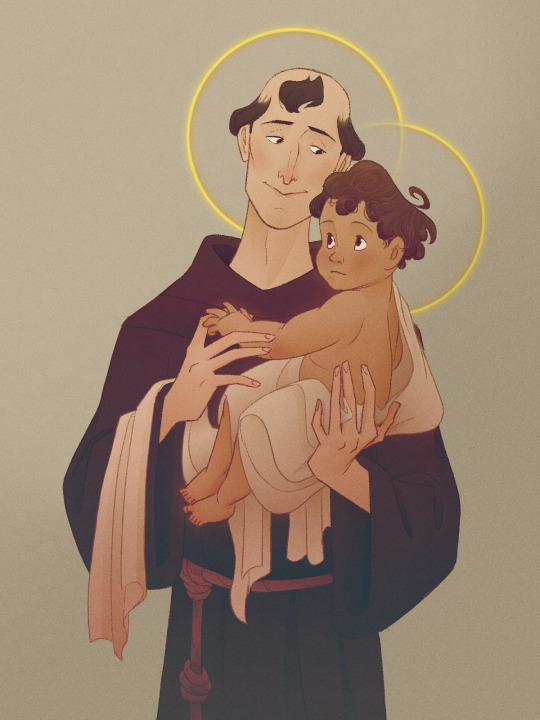
The saint for finding lost things.
I gotta say, reading about him is very humbling, born from a rich family, but became a saint for the poor.
I'm practicing him, 'cause I wanna make sure to give distinct looks with different saints.
#Also I hope Jesus is proud of me with his baby version#St. Anthony of Padua#Saints#Franciscan#Catholic art#my art#my faith#friar#Baby Jesus#Christianity#art
179 notes
·
View notes
Text
[very important issue]
This is how it started, with this message, “Could you say something about [very important issue]?”
My response, “I would be glad to, when God puts it in my heart to talk about it.”
(In case you wondered how I pick what I write about, the short answer is – I don’t. I pray about the readings and the saints – and let God lead.)
My answer was not good enough. Because what followed was a wall of text, emphatically telling me two things.
One, there was nothing more important or more urgent than [very important issue]. And two, because I was not hyper-focused on [very important issue], I must be one of “them.”
It was an exchange that came back to me as I was praying about today’s readings and today’s saint – St. Anthony of Padua.
St. Anthony was a Franciscan and a great preacher. But that’s not why we remember him. Mostly, we think of St. Anthony as the patron saint of lost things. As in this classic,
“Tony, tony, turn around. Something’s lost that can’t be found.”
(What? You thought all Catholic prayers were beautiful prose poems like the Magnificat?)
That silly little prayer came to mind. And then it hit me. That was exactly what was behind the wall of text.
For the person behind the wall of text – you and I must never forget that there is a person behind all that stuff, made in the likeness and image of God. Someone who Christ died to save.
For the person behind the wall of text, something had been lost.
They had lost their source of life. And now they were trying to find their meaning in [very important issue], to make [very important issue] the life of their soul. Something that could never do the job.
Not because [very important issue] wasn’t important or urgent. But because there is no very important issue that can ever do the job of being our source of life.
Because that’s just not how we’re made. As St. Anthony tells us,
“The life of the body is the soul, the life of the soul is Christ.”
And anytime we look to anything or anyone but Christ to find our meaning, to be the life of our soul? We’ve lost something priceless.
And we’re on our way to becoming someone we never meant to be. Someone we would block online.
Something to keep in mind, the next time you and I lose ourselves in a very important issue.
Today’s Readings
#Lost#Very important issue#God#Jesus#Catholic#Christian#Church#St. Anthony of Padua#Meaning#Life#Soul#Moments Before Mass
25 notes
·
View notes
Text
“We spread the love of God by loving as He loves.”
- St. Anthony of Padua
20 notes
·
View notes
Text
Me (not particularly super religious but I hate misplacing things) trying to remember who the Saint for helping you find misplaced items is and I learn this fact:
"There are more than 10,000 saints recognized by the Roman Catholic Church, though the names and histories of some of these holy men and women have been lost to history. The saints of the church are a diverse group of people with varied and interesting stories."
Anyway, St. Anthony of Padua is the Saint for helping you find misplaced items:
The Portuguese and the Italian claim Saint Anthony as their own, and not without reason on both sides: born in Lisbon in 1195 under the name Fernando de Bulloes y Taveira de Azevedo, upon entering the Order of Friars Minor (that is, the Franciscan Order) he assumed the name Antonio, in homage to San Antonio Abad. In Padua, the city where he died and is buried, stands the Basilica dedicated to him, popularly known simply under the name of “il santo” –“the saint”– no further info needed.
Saint Anthony is widely known as the “Patron Saint of Lost Things.”It all goes back to a story from his life. A novice stole a book of Psalms he had. When St. Anthony prayed to God for it to be recovered, the novice returned it to him.
Throughout the centuries countless people have turned to St. Anthony in their hour of need, and many times their prayers were answered. Invoking his intercession does not always guarantee that the item will be found, but when the person prays to St. Anthony with an honest faith and open heart, God always answers the petition somehow.
Here is a popular prayer to St. Anthony to recover a lost item, as well as a catchy rhyme that is easy to memorize:
St. Anthony, perfect imitator of Jesus, who received from God the special power of restoring lost things, grant that I may find [name the item] which has been lost. At least restore to me peace and tranquility of mind, the loss of which has afflicted me even more than my material loss. To this favor, I ask another of you: that I may always remain in possession of the true good that is God. Let me rather lose all things than lose God, my supreme good. Let me never suffer the loss of my greatest treasure, eternal life with God. Amen
^^^ I'm not going to remember that.
or
Tony, Tony,
look around.
Something’s lost
and must be found!
^^^ Makes me think of Tony Soprano lol.
or
Dear St. Anthony, please come around: something is lost, and it cannot be found.
^^^ Tried this but it didn't work.
My Personal fave prayer I use a lot though is :
So Tony, Tony where the heck on Earth are my misplaced items exactly? Thx Amen.
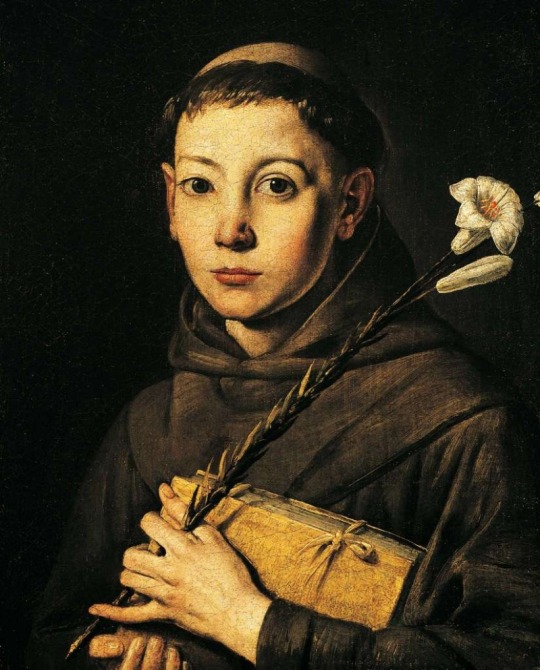
Artist: Tanzio da Varallo Location: Private collection
Medium: Oil Painting .
Title: St. Anthony of Padua
#saint of misplaced items#saints#saint#st. anthony of padua#tanzio da varallo#12th century#franciscan monk#monk#monks#trying to find things#oil painting
11 notes
·
View notes
Text

#traditional catholicism#traditional catholic images#traditional catholic saints#traditional catholic saints images#traditional catholic saints quotes#st. anthony of padua
9 notes
·
View notes
Photo
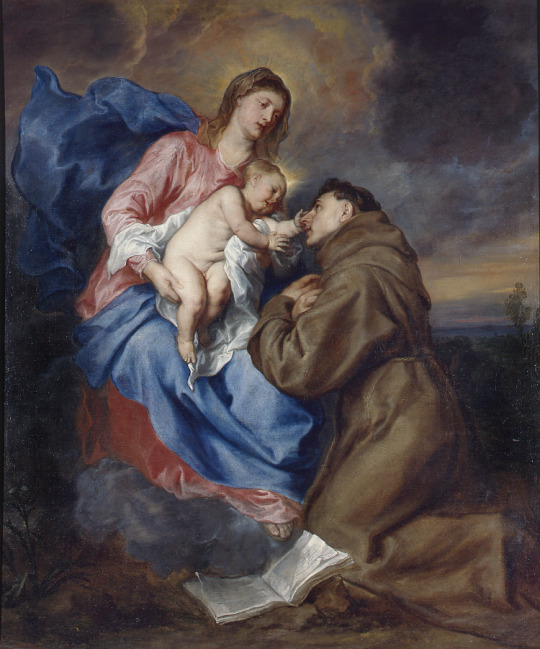
Anthony van Dyck - The Vision of St. Anthony of Padua (between 1630 - 1632)
16 notes
·
View notes
Photo


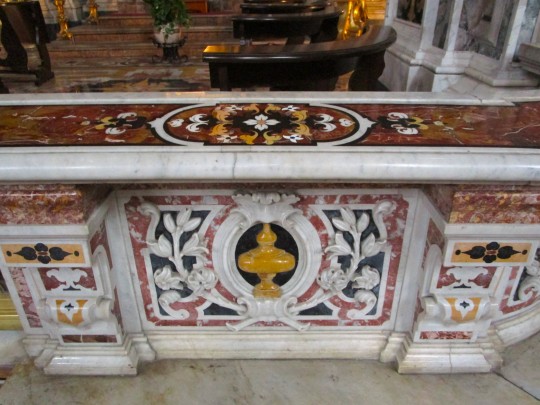


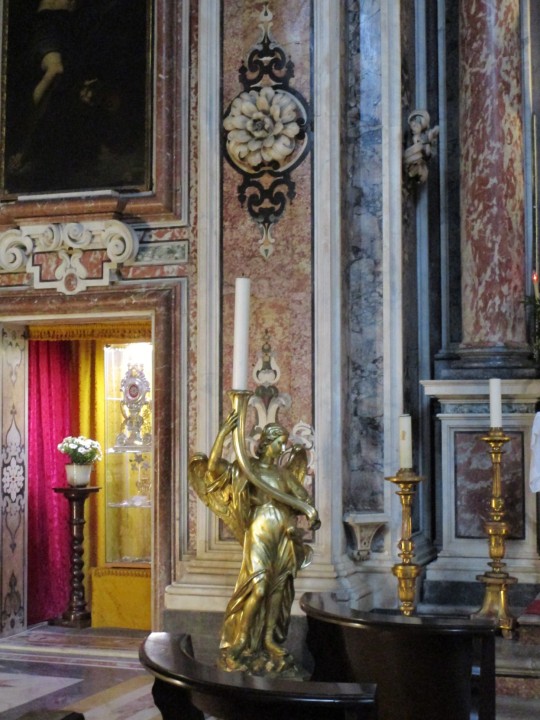
The Neapolitan Baroque Chapel of Saint Anthony designed by Cosimo Fanzago and completed in 1638 - San Lorenzo Maggiore, Naples
Photos by Charles Reeza
#catholic church#Baroque art#st. anthony of padua#stone carving#sculpture#polychrome marble#Napoli#Italy#places to see#travel photos
22 notes
·
View notes
Text
SAINT OF THE DAY (June 13)

On June 13, Catholics honor the memory of the Franciscan priest St. Anthony of Padua.
Although he is popularly invoked today by those who have trouble finding lost objects, he was known in his own day as the “Hammer of Heretics” due to the powerful witness of his life and preaching.
The saint known to the Church as Anthony of Padua was not born in the Italian city of Padua, nor was he originally named Anthony.
He was born as Ferdinand on 15 August 1195 in Lisbon, Portugal, the son of an army officer named Martin and a virtuous woman named Mary.
They had Ferdinand educated by a group of priests, and the young man made his own decision to enter religious life at age 15.
Ferdinand initially lived in a monastery of the Augustinian order outside of Lisbon. But he disliked the distraction of constant visits from his friends and moved to a more remote house of the same order.
There, he concentrated on reading the Bible and the Church Fathers, while living a life of asceticism and heartfelt devotion to God.
Eight years later, in 1220, Ferdinand learned the news about five Franciscan friars who had recently died for their faith in Morocco.
When their bodies were brought to Portugal for veneration, Ferdinand developed a passionate desire to imitate their commitment to the Gospel.
When a group of Franciscans visited his monastery, Ferdinand told them he wanted to adopt their poor and humble way of life.
Some of the Augustinian monks criticized and mocked Ferdinand's interest in the Franciscans, which had been established only recently, in 1209.
However, prayer confirmed his desire to follow the example of St. Francis, who was still living at the time.
He eventually obtained permission to leave the Augustinians and join a small Franciscan monastery in 1221.
At that time, he took the name Anthony, after the fourth-century desert monk, St. Anthony of Egypt.
Anthony wanted to imitate the Franciscan martyrs who had died trying to convert the Muslims of Morocco.
He traveled on a ship to Africa for this purpose, but became seriously ill and could not carry out his intention.
The ship that was supposed to take him to Spain for treatment was blown off course and ended up in Italy.
Through this series of mishaps, Anthony ended up near Assisi, where St. Francis was holding a major meeting for the members of his order.
Despite his poor health, Anthony resolved to stay in Italy in order to be closer to St. Francis himself.
He deliberately concealed his deep knowledge of theology and Scripture. He offered to serve in the kitchen among the brothers.
At the time, no one realized that the future “Hammer of Heretics” was anything other than a kitchen assistant and obedient Franciscan priest.
Around 1224, however, Anthony was forced to deliver an improvised speech before an assembly of Dominicans and Franciscans, none of whom had prepared any remarks.
His eloquence stunned the crowd, and St. Francis himself soon learned what kind of man the dishwashing priest really was.
In 1224, he gave Anthony permission to teach theology in the Franciscan order – “provided, however, that as the Rule prescribes, the spirit of prayer and devotion may not be extinguished.”
Anthony taught theology in several French and Italian cities, while strictly following his Franciscan vows and preaching regularly to the people.
Later, he dedicated himself entirely to the work of preaching as a missionary in France, Italy and Spain, teaching an authentic love for God to many people – whether peasants or princes – who had fallen away from Catholic faith and morality.
Known for his bold preaching and austere lifestyle, Anthony also had a reputation as a worker of miracles, which often came about in the course of his disputes with heretics.
His biographers mention a horse, which refused to eat for three days, and accepted food only after it had placed itself in adoration before the Eucharist that Anthony brought in his hands.
Another miracle involved a poisoned meal, which Anthony ate without any harm after making the sign of the Cross over it.
And a final often recounted miracle of St. Anthony’s involved a group of fish, who rose out of the sea to hear his preaching when heretical residents of a city refused to listen.
After Lent in 1231, Anthony's health was in decline.
Following the example of his patron – the earlier St. Anthony, who had lived as a hermit – he retreated to a remote location, taking two companions to help him.
When his worsening health forced him to be carried back to the Franciscan monastery in Padua, crowds of people converged on the group in hopes of paying their homage to the holy priest.
The commotion surrounding his transport forced his attendants to stop short of their destination.
After receiving the last rites, Anthony prayed the Church's seven traditional penitential psalms, sung a hymn to the Virgin Mary, and died on 13 June 1231 at the age of 36.
St. Anthony's well-established holiness, combined with the many miracles he had worked during his lifetime, moved Pope Gregory IX – who knew the saint personally – to canonize him one year after his death, on 30 May 1232.
“St. Anthony, residing now in heaven, is honored on earth by many miracles daily seen at his tomb, of which we are certified by authentic writings,” proclaimed the 13th-century Pope.
5 notes
·
View notes
Text
Feast Day of Saint Anthony of Padua
Saint Anthony of Padua with the Christ Child
Among the list of Franciscan saints, the most popular among them, after Saint Francis of Assisi, is Saint Anthony of Padua (1195-1231). But, were it not for a chance encounter, things might have been different.
He was born in Lisbon, Portugal, with the name of Fernando Martins de Bulhoes. The family was well off, and arranged for him to be educated…

View On WordPress
3 notes
·
View notes
Text
⚠️ On this special day we are Christian posting ✝️✝️✝️ (not unlike other days)
5 notes
·
View notes
Text
Watch "Creation of nature is the master key to understand Spiritualism | Creation of universe" on YouTube
youtube
#godkabir#santrampaljimaharaj#hinduism#muslim#hindu#italygram#italy#perugia#padua#st. anthony of padua#Youtube
3 notes
·
View notes
Text
St Anthony of Padua
Today is the Feast Day of St. Anthony of Padua. Most people know St. Anthony as the patron saint of lost and stolen articles, but have you ever wondered why he is that particular patron saint?
The Patron Saint of Lost Things. The reason for invoking St. Anthony’s help in finding lost or stolen things is traced back to an incident in his own life. As the story goes, Anthony had a book of psalms…
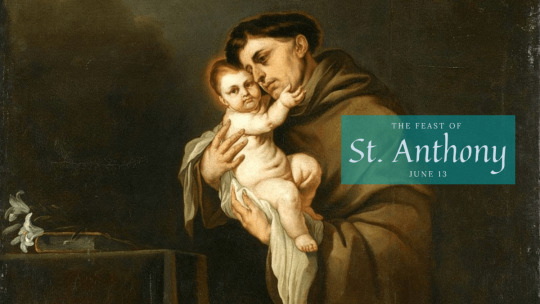
View On WordPress
0 notes
Text
“If things created are so full of loveliness, how resplendent with beauty must be the One who made them!”
- St. Anthony of Padua
21 notes
·
View notes
Text
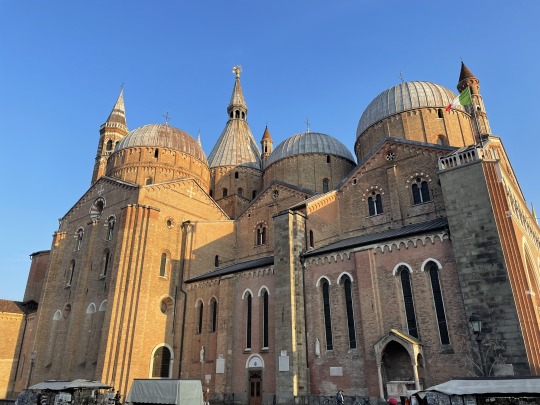
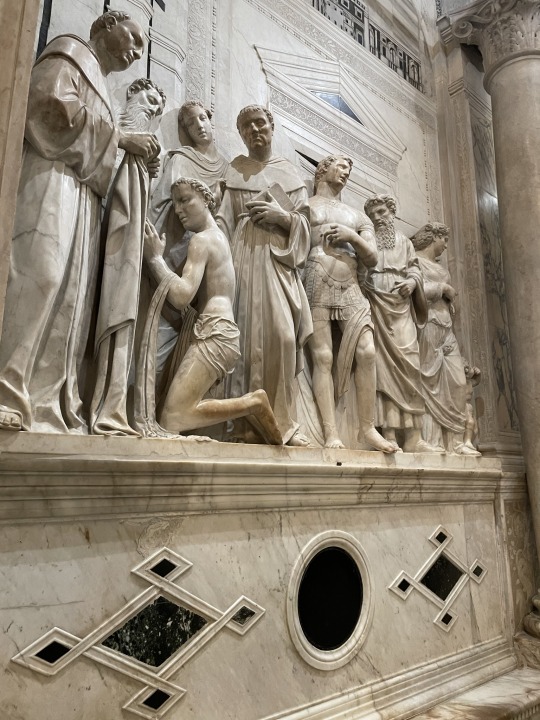

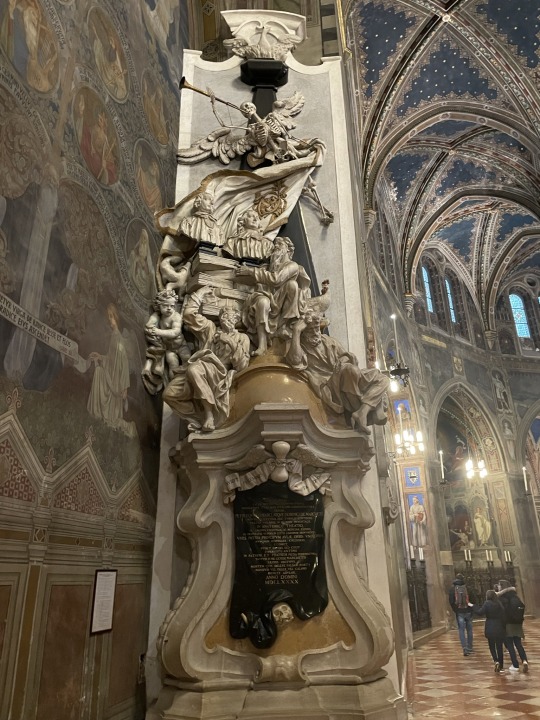
Basilica of St. Anthony of Padova 4.3.23
Padova, Italia
1 note
·
View note
Text

St. Anthony of Padua.
#traditional catholicism#traditional catholic images#traditional catholic modern art#traditional catholic saints#traditional catholic saints images#st. anthony of padua
12 notes
·
View notes
Text

May be Late for now, but in the end rejoice! for Christ, our Savior is born!
"Gloria in excelsis Deo!"
(Originally taken on December 14th, 2022)
#Christmas#Christmas Tree Lighting#Christmas tree#Rogationist#St. Hannibal mary di Francia#St. Anthony of Padua
0 notes